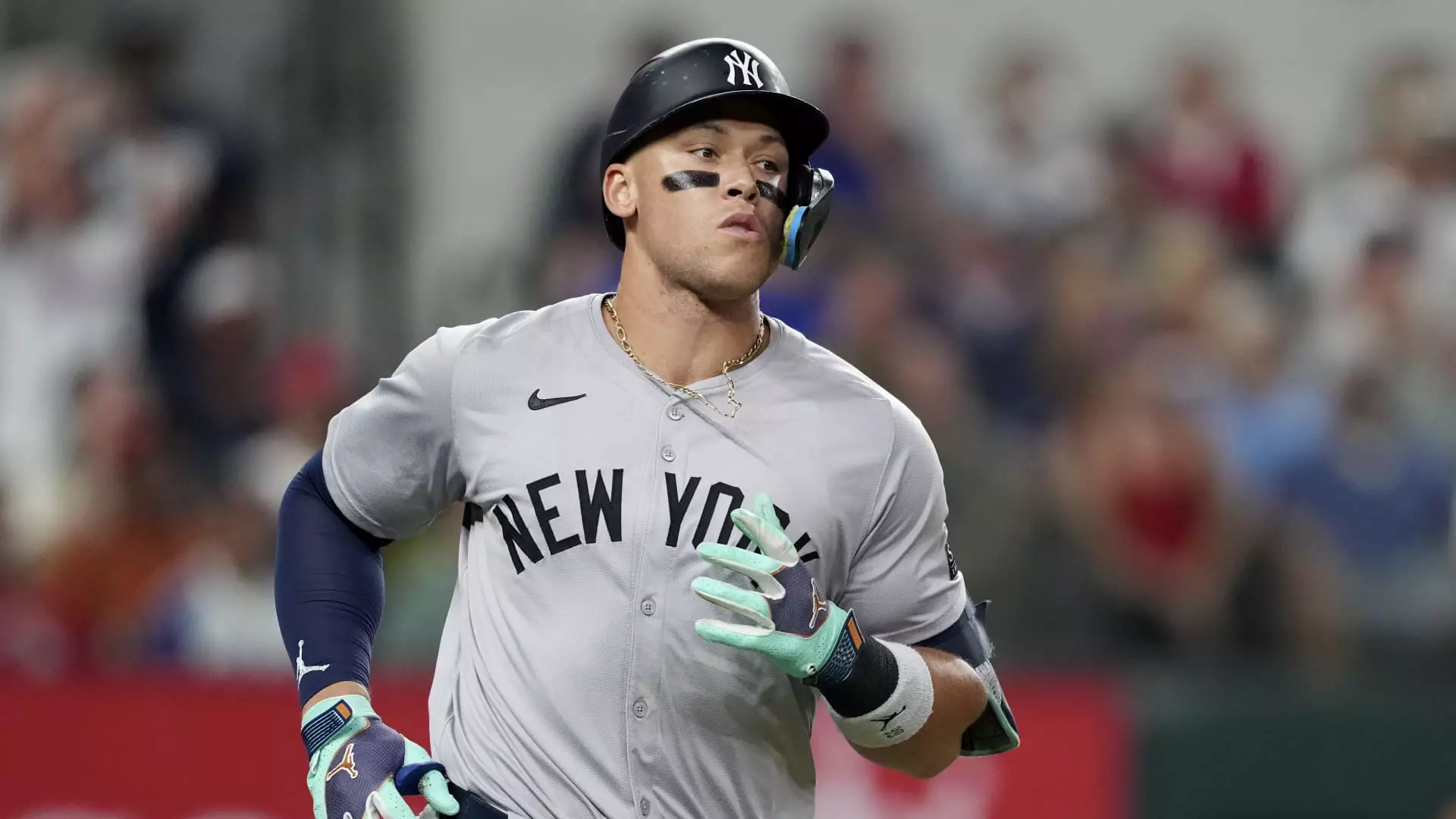Major League Baseball (MLB) has recently experienced a notable surge in viewership during its postseason, prompting discussions about the sport’s evolving fan engagement and relevance. This article delves into the significant aspects contributing to this upward trend and analyzes the broader implications for the league going forward.
The opening game of the National League Championship Series (NLCS) between the New York Mets and the Los Angeles Dodgers captivated 8.26 million viewers across Fox Sports platforms, marking it as the most viewed LCS game since 2009. This impressive figure underscores a revival of interest in the league’s playoff landscape. Simultaneously, the first game of the American League Championship Series (ALCS) saw a 4% increase compared to the previous year, attracting 3.9 million viewers. These statistics are particularly noteworthy considering the concurrent popularity of “Sunday Night Football” and “Monday Night Football,” which featured all three New York NFL teams in prime time.
The significant viewership gains follow a successful league division series where the ALDS averaged 3 million viewers, reflecting a commendable 20% increase from the previous season. Similar trends were observed in the National League Division Series, advising that fans are rediscovering their passion for baseball during the playoffs.
Despite the positive trends, MLB has grappled with concerns over its cultural relevance, especially among younger audiences increasingly influenced by rapid media consumption habits. Many youths favor quick highlights over full games, indicating a changing landscape in sports entertainment consumption. Previous seasons have not been without their challenges; notably, the 2023 World Series received the lowest ratings in history, attributed primarily to the participation of less nationally recognized teams, like the Texas Rangers and Arizona Diamondbacks.
These issues have prompted the league to heighten its appeal through targeted rule changes aimed at shortening game times and increasing in-game action. The 2024 season saw heightened fan engagement attributed to the pitch clock initiative, which successfully curtail long game durations, thereby catering more effectively to the preferences of modern fans.
MLB’s resolve to innovate is evident in its adaptation of numerous rule changes in an effort to foster excitement and engagement. Initiatives such as introducing larger bases and restricting the defensive shift have led to dynamic gameplay and enhanced opportunities for offensive strategy. The league’s advertisement of star players like Shohei Ohtani and Aaron Judge, both pivotal figures on their respective teams, has further solidified a narrative designed to attract viewers.
Commissioner Rob Manfred has acknowledged the league’s growing momentum, stating, “The increased enthusiasm baseball fans of all ages have shown the last two seasons is evident in all of the ways we track fan engagement.” This acknowledgment emphasizes the importance of monitoring not only attendance but also the instilled passion within the sport, signifying a glimmer of hope for the future of baseball.
The ongoing postseason coupling of storied franchises such as the Yankees and Dodgers creates an enticing narrative, enticing both long-time fans and newcomers alike. Todd Boehly, CEO of Eldridge Industries, whose firm owns the Dodgers, emphasized the significance of such matchups, stating, “There couldn’t be anything better for baseball.” The potential showdown between these giants will certainly engage viewers and could signify a turning point in MLB’s quest to recapture its status as America’s pastime.
Moreover, the resurgence of teams like the Mets, who rallied after a challenging start, and the Guardians, who capitalized on star player performances, demonstrates the competitive nature of the league. These narratives resonate with fans longing for authenticity and drama inherent in sports.
In reviewing the surging viewership numbers and the ongoing narratives, it is evident that Major League Baseball is on the brink of a renaissance. Factors such as strategic rule changes, compelling team stories, and key player stars contribute to re-establishing the sport’s foothold in American culture. With increased innovation and fan engagement strategies, MLB appears poised not only to reclaim its traditional audience but also to engage new generations. As the postseason unfolds, all eyes will be on the diamond, witnessing the unfolding of a fascinating new chapter in baseball’s storied history.

